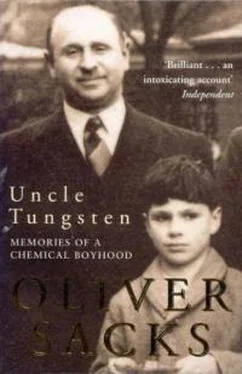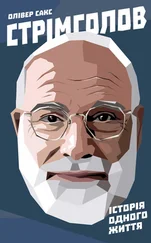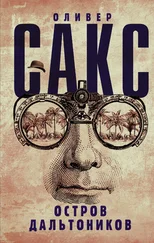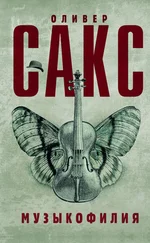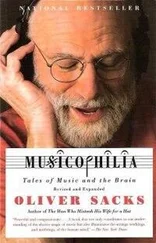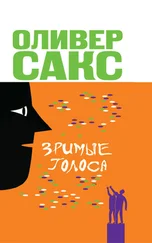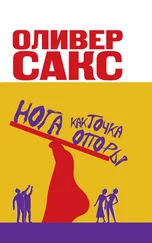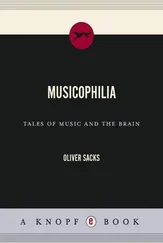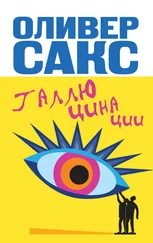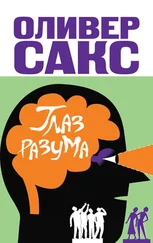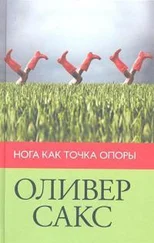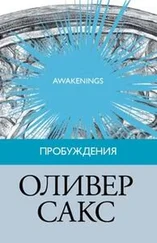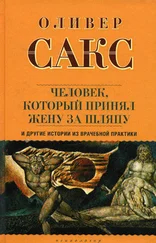Hertz died as a very young man, and never knew that his discovery was to revolutionize the world. Uncle Abe himself was only eighteen when Marconi first transmitted radio signals across the English Channel, and he remembered the excitement of this, even greater than the excitement over the discovery of X-rays two years earlier. Radio signals could be picked up by certain crystals, especially crystals of galena; one would have to find the right spot on their surface by exploring them with a tungsten wire, a ‘cat’s whisker.’ One of Uncle Abe’s own early inventions was to make a synthetic crystal that worked even better than galena. Everyone still spoke of radio waves as ‘Hertzian waves’ at this point, and Abe had called his crystal Hertzite.
But the supreme achievement of Maxwell was to draw all electromagnetic theory together, to formalize it, to compress it, into just four equations. In this half-page of symbols, Abe said, showing the equations to me in one of his books, was condensed the whole of Maxwell’s theory – for those who could understand them. Maxwell’s equations revealed, for Hertz, the lineaments of ‘a new physics… like an enchanted fairyland’ – not only the possibility of generating radio waves, but a sense that the whole universe was crisscrossed by electromagnetic fields of every sort, reaching to the ends of the universe.
Zionism played a considerable part on both sides of my family. My father’s sister Alida worked during the Great War as an assistant to Nahum Sokolov and Chaim Weitzmann, the leaders of Zionism in England at the time, and, with her gift for languages, was entrusted with the translation of the Balfour Declaration in 1917 into French and Russian, and her son Aubrey, even as a boy, was a learned and eloquent Zionist (and later, as Abba Eban, the first Israeli ambassador to the United Nations). My parents, as doctors with a large house, were expected to provide a venue, a hospitable place, for Zionist meetings, and such meetings often took over the house in my childhood. I would hear them from my bedroom upstairs – raised voices, endless argument, passionate poundings of the table – and every so often a Zionist, flushed with anger or enthusiasm, would barge into my room, looking for the loo.
These meetings seemed to take a lot out of my parents – they would look pale and exhausted after each one – but they felt a duty to host them. I never heard them talk between themselves about Palestine or Zionism, and I suspected they had no strong convictions on the subject, at least until after the war, when the horror of the Holocaust made them feel there should be a ‘National Home.’ I felt they were bullied by the organizers of these meetings, and by the gangsterlike evangelists who would pound at the front door and demand large sums for yeshivas or ‘schools in Israel.’ My parents, clearheaded and independent in most other ways, seemed to become soft and helpless in the face of these demands, perhaps driven by a sense of obligation or anxiety. My own feelings (which I never discussed with them) were passionately negative: I came to hate Zionism and evangelism and politicking of every sort, which I regarded as noisy and intrusive and bullying. I longed for the quiet discourse, the rationality, of science.
My parents were moderately orthodox in practice (though there was little discussion that I remember as to what anyone actually believed), but some of the family were extremely orthodox. It was said that my mother’s father would wake up at night if his yarmulke fell off, and that my father’s father would not even swim without his. Some of my aunts wore sheitls – wigs – and these gave an oddly youthful, sometimes mannequinlike appearance to them: Ida had a bright yellow one, Gisela a raven black one, and these remained unchanged even when my own hair, many years later, had started to turn grey.
My mother’s eldest sister, Annie, had gone to Palestine in the 1890 sand founded a school in Jerusalem, a school for ‘English gentlewomen of the Mosaic persuasion.’ Annie was a woman of commanding presence. She was excessively orthodox, and (I suspect) believed herself to be on close personal terms with the Deity (as she was with the Chief Rabbi, the Mandate, and the Mufti, in Jerusalem). [38]She would arrive periodically in England with steamer trunks so enormous they needed six porters to lift them, and on her visits she would introduce an atmosphere of terrifying religious strictness in the house – my parents, less orthodox, were somewhat scared of her gimlet eye.
On one occasion – it was an oppressive Saturday in the tense summer of 1939 – I decided to ride my tricycle up and down Exeter Road near the house, but there was a sudden downpour and I got completely soaked. Annie wagged a finger at me, and shook her heavy head: ‘Riding on shabbas! You can’t get away with it’, she said. ‘He sees everything, He is watching all the time!’ I disliked Saturdays from this time on, disliked God, too (at least the vindictive, punitive God that Annie’s warning had evoked), and developed an uncomfortable, anxious, watched feeling about Saturdays (which persists, a little, to this day).
In general – that Saturday was an exception – I would go with the family to shul, the commodious Walm Lane Synagogue which, at that time, had a congregation of over two thousand. We would all be scrubbed and excessively clean, and dressed in our ‘Sunday’ best, and walk down Exeter Road following our parents, like so many ducklings. My mother, along with various aunts, would climb to the women’s gallery.
When I was very young, three or less, I would go with her, but as a ‘grown-up’ boy of six, I was expected to be downstairs with the men (though I was always stealing glances at the women upstairs, and sometimes tried to wave, though I was sternly forbidden to do so).
My father was well known in the congregation – half of whom were his patients, or my mother’s – and had the reputation of being a staunch supporter of the community and a scholar, though his scholarship was nothing, he told me, to that of Wilensky across the aisle, who knew every word of the Talmud so thoroughly by heart that if a pin were stuck into any of the volumes, he could tell you what sentence it would pierce on every page. Wilensky did not follow the service, but some internal program or litany of his own, always rocking back and forth, davening, in his own way. He had long ringlets, and payes down his face – I looked at him with awe, as something superhuman.
It was a very long service on Saturday mornings, which even with high-speed praying took a minimum of three hours – and the praying was, at times, incredibly fast. One silent prayer, the Amidah, had to be said standing, facing toward Jerusalem. It was, I supposed, about ten thousand words long, but the front-runners in the shul could do it in three minutes flat. I would read as much as I could (with frequent glances at the translation on the opposite page to see what it all meant), but I had scarcely read more than a paragraph or two before the time was up, and the service rushed ahead onto something else. For the most part I did not try to keep up, but wandered through the prayer book in my own way. It was here that I learned about myrrh and frankincense, and the weights and measures used in the land of Israel three thousand years ago. There were many passages which attracted me with their rich language, or their beauty, their sense of poetry and myth, detailing the odors and spices that went with some sacrifices. It was evident that God had an acute nose. [39]
I liked the singing, the choir – where cousin Dennis sang, and Uncle Moss presided – the virtuosic chazzan , and some of the savage, rabbinical speeches, and occasionally the sense that all of us actually formed a single community. But by and large, the synagogue oppressed me; religion seemed more real, and infinitely more pleasant, at home. I loved Passover, with its preliminaries (removing all the leavened bread, the chometz , from the house, burning it, sometimes communally with our neighbors), the special, beautiful cutlery and plates and tablecloths we used for its eight days, and the rooting up of the horseradish that had been growing in the garden, its grinding which led to copious tears.
Читать дальше
